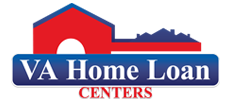
Arguably, if not definitively the most advantageous entitlement accessible to eligible military members and veterans, the VA Home Loan Program is appealing for a variety of reasons. The VA insured mortgage program offers zero money down requirements, relaxed underwriting standards, non-established credit scores, assumable loans and property requirements that make certain that potential residences are safe and habitable. Although the housing program has been available since 1944, its popularity has taken off in recent years. In 2014, The Department of Veterans Affairs announced that it had insured its 20 millionth home. When comparing the housing market of 2014 to 2004, the growth of the program is evident. Ten years ago only two percent of all mortgages were VA-backed. In the first quarter of 2014, that number was up six percent. Simply put, because the government insures these loans, conventional loans do not compare.
The appeal of the loan is rooted in the amount of cost savings it provides borrowers. The VA housing loan program reduces the kinds of costs that a veteran may pay and encompasses charges like the appraisal fee, credit report, origination, recording and survey and title reports. Costs associated with the mortgage loan are classified as either recurring or non-recurring charges, meaning some are one time fees and others will be continuous while the borrower maintains the VA backed mortgage. During the evaluation of the potential borrower’s application, these costs are taken into account in determining the likelihood that a participant will be able to pay the loan back. A lender will look through bank statements, investment accounts, and other documents to ensure that the borrower has the necessary funds to close a VA loan transaction. For example, if your non-recurring and recurring costs add up to $6,000, the lender will look for at least $6,000 in available liquid assets.
Although lenders generally require money to close to come from a liquid cash account, cash reserves are not always required to obtain VA home loan approval. In some circumstances, acceptable levels of liquid assets may be required by the underwriter. Down payment, although not a requirement for VA loans, may be considered as a liquid asset. Other liquid assets include, checking and savings funds, IRA and investment accounts, pension funds, trust funds, mutual accounts, brokerage accounts, certificates of deposit, and other types of accounts considered acceptable by the underwriter. Essentially, a liquid account means the account holder has immediate access to the money, and that is withdrawable at any time without penalty.
During the standard evaluation process, the lender will look at the applicant’s previous two months of banks statements. In looking at these statements, the lenders are looking to ensure the borrower has sufficient funds as well as for consistency in reported income. If you get paid on the fifth and the twentieth every month, but additional deposits appear at different dates you may need to document these to the lender.
Cash reserves are usually not required on the purchase of a single family home. Scenarios that typically require reserve funds include:
- The purchase of a triplex
- The purchase of a fourplex
- The purchase of a single family home if the buyer also owns other rental properties
- Escrow fund reserves may be required, this is up to the individual lenders discretion
Note: If the monthly mortgage payment on a fourplex is $2,000 or more, the lender will need to verify reserve funds of six times the mortgage amount IE $2,000 x 6 =$12,000.
If the loan amount exceeds $417,000 but is less than the loan limit set for the local municipality, a capital contribution may also be required. These types of loans are called Jumbo VA Loans.
If you are interested in applying for a VA Housing Loan follow this page to fill out an application.
